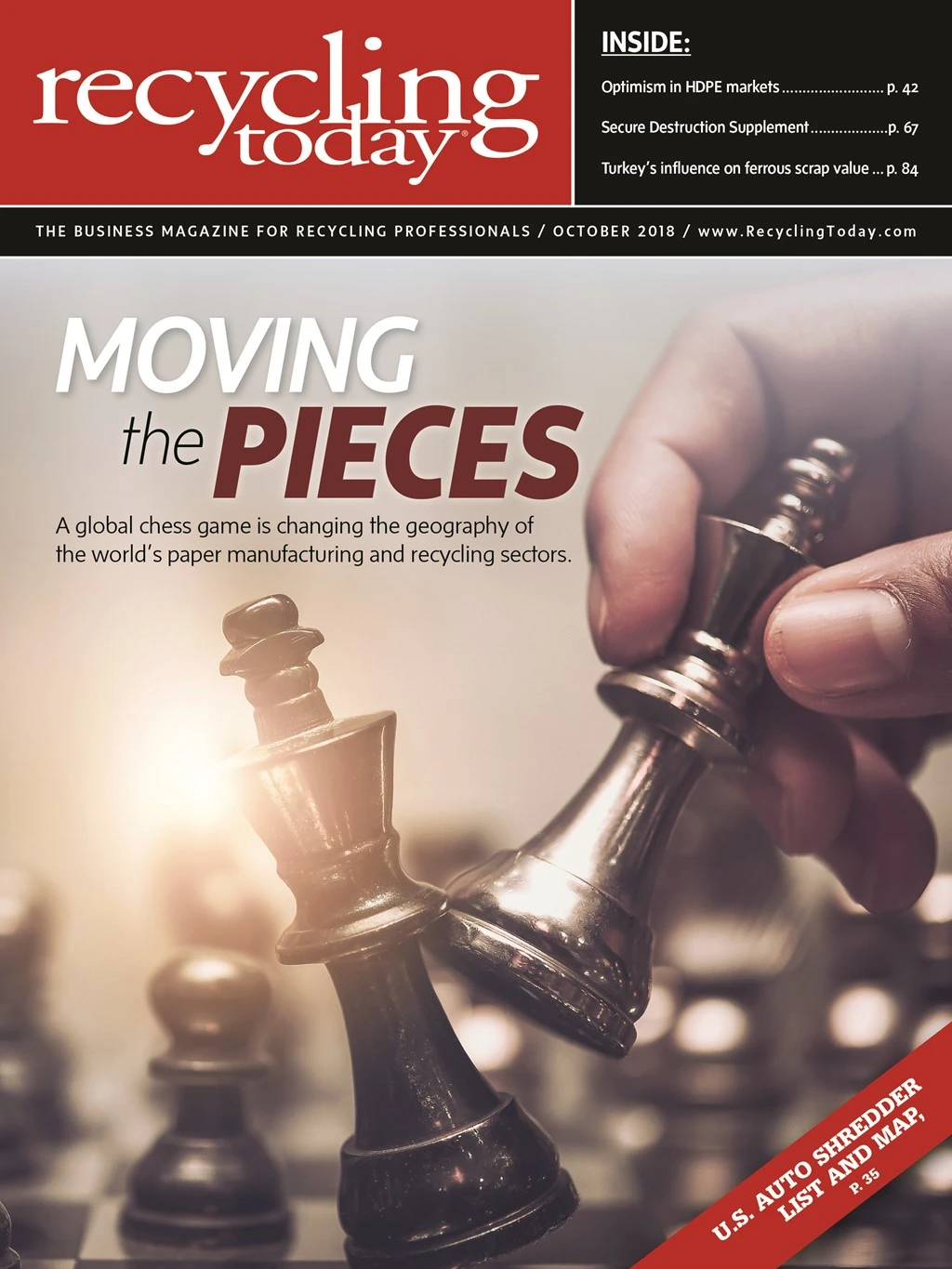
Whether looking to buy or sell a business or access capital for growth, a nuanced understanding of business valuation do’s and don’ts is a must for company owners working in the waste and recycling sector today.
Recycling Today Media Group (RTMG) talked with Brad Page, managing director of William Blair & Co., Chicago, about what to know about business valuation—and what third parties are looking to see—to maximize growth opportunities.
RTMG: What are some internal metrics business owners can look at that might signal it could be a good time to look for capital or sell their businesses?
Brad Page (BP): While every business is different, generally speaking, the best time to raise capital—debt or equity—is when there is a clearly defined use of proceeds that will strengthen the business (for example, upgrading an aging fleet to reduce future maintenance costs or implementing a new safety training program to help the company operate more efficiently). Other productive uses of capital include building facilities or acquiring a competitor with a complementary customer base or services.
When considering a potential sale, the best time to go to market is when the company is performing well and when future growth opportunities have been identified. This will help maximize value.
RTMG: How do external economic factors influence a business’ valuation and the ability to sell?
BP: External economic factors can be incredibly important to a transaction, either positively or negatively influencing valuation. For example, macroeconomic factors, such as population trends and economic growth rates of a specific region of the country, can have a major influence on a company’s valuation.
Additionally, the recent decline in recycled commodity prices has had a negative impact on the financial performance of many waste and recycling companies and, therefore, has hurt their valuations.
RTMG: What are outside parties most interested in when determining a company’s value?
BP: Analysis across industries has shown that the biggest drivers of valuations are a company’s revenue growth rate and margin profile. Going a level deeper, buyers in this industry specifically will pay close attention to the consistency and predictability of the revenue streams, the company’s exposure to fluctuations in commodity prices and the value of the fleet. In evaluating the company’s customer base, buyers will analyze the length of customer contracts and the breakdown of customer type (i.e., commercial, residential, construction and demolition and temporary versus permanent roll-off). Buyers like to see long-term contracts with customers, low levels of concentration among any one customer and a strong safety track record.
RTMG: What steps can business owners take to bolster the value of their businesses?
BP: Beyond adding high-quality routes that provide predictable revenue streams, owners can increase the potential value of their businesses by implementing rigorous safety protocols and training programs, modernizing their fleets and strengthening their management teams to build a deep bench. Fostering a positive culture within the company, which should reduce turnover among drivers and other employees, will improve valuation as well.
RTMG: What information must business owners provide to banks and other counter parties during the valuation process?
BP: Among the most important pieces of information that lenders and other capital providers will want to see are financial statements that detail the company’s historical revenue and profitability, asset values and details about customer relationships. Having audited financial statements is very helpful. Financial statements that have been reviewed rather than fully audited is the next best option.
RTMG: What resources should a business owner consider using to ensure proper valuation of his or her business? Who can provide assistance during this process?
BP: The core team of third-party advisors in a business sale or capital-raising process includes investment bankers, accountants and attorneys.
It’s important to work with advisors who have deep experience in and knowledge of the waste and recycling industry because every industry has different nuances and dynamics that can have a major impact on the success of a transaction.
RTMG: What common missteps do business owners make when it comes to valuation? How can these be avoided?
BP: Sometimes business owners become overly focused on revenue and don’t pay enough attention to profitability. A company’s revenue growth is one of the most important drivers of valuation, but profitability (i.e., a company’s margin profile) is equally important.
It’s also valuable to remember that buyers, investors and lenders will care more about the company’s future than its past. If you have solid financials now, but you don’t have the right infrastructure, equipment, routes, contracts and systems in place to allow you to sustain those profits and capitalize on future growth opportunities, it’s going to have a major impact on your valuation.
Another mistake business owners make that can hurt their valuations is working with just one potential buyer. To maximize value and increase the likelihood of a deal getting done, you want to “clear the market” and create a competitive dynamic that identifies all the most interested potential buyers, investors or lenders.

Explore the October 2018 Issue
Check out more from this issue and find your next story to read.
Latest from Recycling Today
- Orion ramping up Rocky Mountain Steel rail line
- Proposed bill would provide ‘regulatory clarity’ for chemical recycling
- Alberta Ag-Plastic pilot program continues, expands with renewed funding
- ReMA urges open intra-North American scrap trade
- Axium awarded by regional organization
- Update: China to introduce steel export quotas
- Thyssenkrupp idles capacity in Europe
- Phoenix Technologies closes Ohio rPET facility





